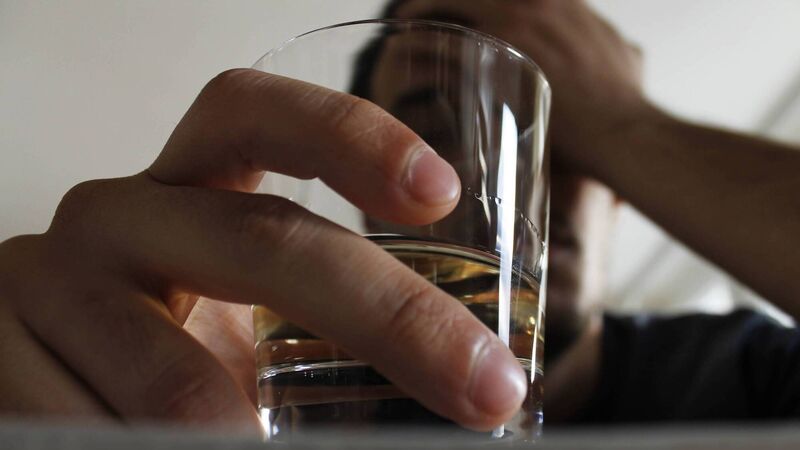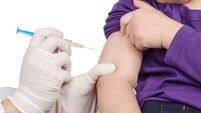Let’s talk about mental health & addiction

Moreover, the interplay between addiction and mental health issues can create a self-perpetuating cycle. Picture: Stock
The relationship between mental health and addiction presents a classic chicken-and-egg dilemma: which comes first, mental health issues or addiction? While research shows that individuals with mental health disorders are three times more likely to experience substance abuse, determining which condition precedes the other remains complex.
Nature vs. Nurture
Genetic factors also play a role in addiction, but they are not enough on their own to cause addiction. Instead, lifestyle, environment, and mental health are key triggers and exacerbators. Trauma and stress, for example, often lead individuals to seek ways to cope with emotional pain, which can result in substance use and abuse.
Environmental triggers such as mental health issues, peer pressure, and cultural norms also play a role addiction.
However, just as certain environmental factors can trigger addiction, others can help prevent it: healthy coping mechanisms, strong family bonds, meaningful social connections, a fulfilling life, and spirituality can all act as protective factors against addiction.
Mental Health and Addiction
Individuals with mental health disorders such as depression, anxiety, or PTSD often turn to substances as a form of self-medication. However, this usually exacerbates their condition, as it suppresses rather than addresses underlying issues.
Trauma survivors, in particular, may use substances to manage triggers, numb emotional pain, or deal with distressing memories and feelings. Studies indicate that two-thirds of individuals with addiction issues have a history of trauma.
Moreover, the interplay between addiction and mental health issues can create a self-perpetuating cycle: substance use can intensify mental health symptoms, which in turn can lead to further substance use. This cyclical pattern complicates treatment, often requiring a dual approach that addresses both mental health and addiction. Early intervention and trauma-informed care are crucial for breaking this cycle, helping individuals tackle their trauma, addiction and mental health issues simultaneously.
Supportive environments and therapeutic relationships also play a significant role in recovery, offering stability and understanding as individuals navigate their recovery journey.
Cultural Norms in Ireland
In Irish society, drinking is both celebrated and normalised. Pubs often serve as the social hub, particularly in rural areas, creating significant social pressure and minimizing perceptions of alcohol misuse. This social structure can pose challenges for those attempting sobriety, as social gatherings frequently centre around alcohol, where non-drinkers can face comments or judgment, adding to the difficulty of maintaining sobriety. Ironically, despite the celebration of drinking, addiction remains heavily stigmatized. Many people hesitate to seek help due to fear of judgment or skepticism about available supports. It is no surprise that Ireland has one of the highest alcohol consumption rates globally, with the prevalence of alcohol use disorder more than twice the global average.
Addiction as a Disease
Addiction impairs the brain’s function, affecting judgment and self-awareness. From an external perspective, it may seem like the individual is choosing their behaviour, but addiction alters brain function, making it challenging for addicts to acknowledge the severity of their condition. This impairment often leads to denial, as addicts avoid feelings of shame and guilt. Additionally, addicts frequently surround themselves with others who share their habits, normalising destructive behaviour and discouraging sobriety. When one individual seeks treatment, it can threaten the group’s dynamic, leading to social isolation for the person pursuing recovery.
This can make the early stages of sobriety – which are already a difficult time - extra challenging as connection and community are important parts of recovery.
Treatment
The stigma surrounding both mental health and addiction can delay individuals from seeking necessary help. However, many people successfully achieve sobriety and overcome addiction, inspiring others to follow suit. Recovery involves building new connections, maintaining hope, fostering a supportive community, learning coping skills, developing new interests, and receiving professional help. Ideally, addiction treatment is personalised, as mental health struggles and addiction affect individuals uniquely. Various approaches, including total abstinence, harm reduction, and addressing underlying mental health issues, may be effective depending on the individual. Specialised, tailored help makes the path to recovery more manageable.
The Sober Curious Movement
The sober curious movement, led by groups such as Sober Social and Boozeless Beours, offers an alternative to traditional drinking culture. This movement promotes alcohol-free events and non-alcoholic drink options, focusing on physical and mental wellness.
It provides a less intense and more accessible alternative to traditional support groups such as AA. Driven by social media, this trend is making sobriety more appealing and reduces the stigma around exploring a sober lifestyle.
Connection heals
While this article primarily addresses alcohol addiction, it is important to note that addiction can take many forms, including gambling, gaming, and other behavioural and substance addictions. It is crucial to recognise that individuals who turn to addiction often have a history of significant mental and emotional struggles. Addressing these underlying issues alongside addictive behaviours is vital for effective treatment. Ultimately, fostering human connection, reducing social isolation, and healing mental health issues and trauma are key components in overcoming addiction.
About the author; Mirin Mooney is a neurodivergent mental health coach, for more information visit www.wildheart-wellness.com
Supports
If you or someone you love is struggling with addiction, please reach out for the help you need.
Cuan Mhuire: www.cuanmhuire.ie
Cork Simon: www.corksimon.ie
Alcoholics Anonymous: www.alcoholicsanonymous.ie
Boozeless Beours: www.instagram.com/boozelessbeours







 App?
App?




